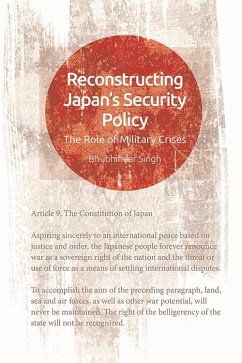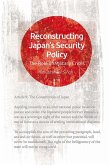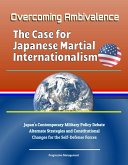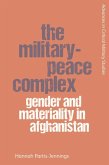Systematically analyses the impact of external military crises on Japanese security policy expansion in the post-Cold War period.Focuses on the widening of Japan's security posture in external security affairs and investigates the causes of this critical changeIdentifies the external military crisis as a critical determinant of change in Japanese security policyUnpacks the deep structures within the Japanese decision-making processes, especially during and after military crisesExamines five key military crises in detail: the 1990-1 Persian Gulf War; the 1994 North Korean Nuclear Crisis; the 1996 Taiwan Straits Crisis, the 1998 Taepodong Crisis; and 2001 September 11 attacks that led to the US-led war against terrorism in Afghanistan and IraqDraws on over 70 interviews the author has conducted with officials, former officials, and academics in universities and think tanks in Japan, the United States, South Korea and Singapore, including officials who were directly involved in the crisis decision-making processThis book is a detailed study of the role that external military crises played in the development and growth of Japanese security policies in the period following the end of the Cold War. This evolution can be seen in the widened role of the Self-Defence Force (SDF) in shaping Japan's security priorities, as well as its proactive contribution to regional/ international security. Focusing on four key case studies - international peacekeeping in 1992, regional defence in 1997-99, global missions in 2003-05, and collective self-defence in 2014-15 - the author argues that the Japanese security policymaking elite achieved security policy expansion by utilizing external military crises as policy windows, inflating and deflating threat elements to circumvent the constraints and justify the implementation of security policy initiatives.
Dieser Download kann aus rechtlichen Gründen nur mit Rechnungsadresse in A, B, BG, CY, CZ, D, DK, EW, E, FIN, F, GR, HR, H, IRL, I, LT, L, LR, M, NL, PL, P, R, S, SLO, SK ausgeliefert werden.









